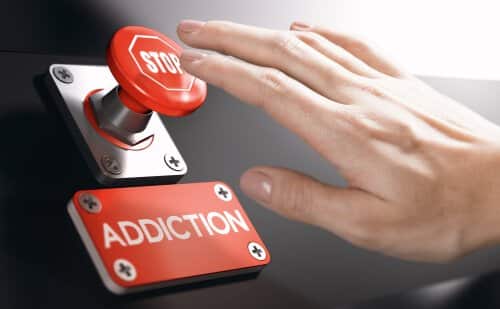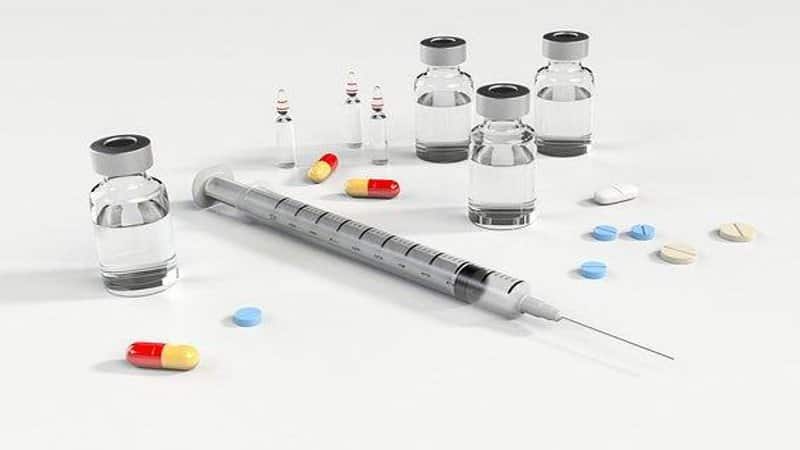Addiction expert, Dr. Cidambi comments on reports of baseball star Dwight Gooden relapsing on PIX 11,New York.
Month: August 2016
Rolling Stone.com : Florida zombie drug flakka : Everything you need to know
With news from Florida that a young man killed two people while high on “Flakka” and tried to eat one of his victim’s face, the Rolling Stone magazine reached out to addiction expert, Dr. Cidambi, to understand the effects of abusing “Flakka.” What kind of high does it give? What can be expect of people high on “Flakka?”
Understanding Relapse and How to Prevent It
Understanding Relapse and How to Prevent It

Addiction is now a national epidemic. Drugs are more accessible and incredibly more potent than they’ve ever been, leading to rising rates of addiction. With the cost of treatment rising and patients bearing more of the cost, a cost-effective treatment option is needed. It comes in the form of outpatient detox programs. These programs are specifically designed to help individuals suffering from addiction to stay sober in their own home environment as opposed to being isolated from it. They are also provided on an in-network basis with most private health insurance providers. This means that the programs are credentialed and the cost to the patient is minimal.
Ambulatory Detoxification or outpatient detoxification can deliver better outcomes as they are able to help the patient apply relapse prevention and coping skills in their home environment in real time. Patients are also able to come back to treatment every morning from home and discuss what worked and what they struggled with. Adjustments can be made while the patients enjoy support at the treatment center and the family can also be brought in and educated about how to better support the patient at home.
Residential or inpatient facilities can not only be extremely expensive, most of them are out-of-network with health insurance providers. This leaves many people suffering with the disease of addiction with another stressor: huge medical bills. Some individuals suffering from this disease will have no option but to seek inpatient treatment because they suffer from a medical condition that requires 24-hour monitoring or their living situation at home is not optimal.
It’s extremely important to work with trained professionals with deep experience in putting people firmly on the road to recovery. On consultation with you, they can tailor a program that will provide the best possible chance of success. Prolonged drug use has a profound effect on the brain, as it rewires the reward pathways. Alcohol and drugs can mimic natural neurotransmitters (dopamine). These are the chemicals that prompt different positive feelings, and they increase their release causing highly pleasurable feelings or euphoria. The brain can eventually become dependent on the drugs to create these chemical reactions. This means that when the body starts to detox, the brain starts sending out distress signals. This can lead to withdrawal symptoms and cravings.
Drug cravings can happen at any time during the recovery phase and they could cause a relapse. Addiction is a chronic disease and relapse is part of recovery. It is a temporary setback and not a failure. Unfortunately, many people become discouraged at this point and go back to full time drug use. The key is to understand the nature of relapse and to have an intervention in place before it happens. Being engaged with self-help groups, such as NA (narcotics anonymous) or AA (Alcoholics anonymous New Jersey) can provide support in the event of a relapse or even before it happens. If relapse does occur, it’s important to remember some of these key factors:
Relapse Is Not Uncommon
Over 50% of people in recovery experience relapse at some point in time. This can happen during times of extreme stress, or when the individual is trying to figure out how to engage themselves in society after rehab treatment has been completed. Just like any other chronic disease, treatment may need to be repeated.
Relapse Doesn’t Equate to Failure
Some addicts become extremely discouraged when they believe that relapse means complete failure. It’s important that they understand that this is a step in the complicated process of staying sober. If relapse does occur, it is important to reach out to someone in the support team. This can allow the individual to analyze the reasons for relapse, and work on putting in interventions for the future.
But, Relapse Can Be Dangerous
It is not uncommon to see when a relapse happens, the individual afflicted by the disease of addiction go back to the same intensity of drug us and overdose. This happens because the body’s tolerance to the drug has diminished because the patient has stayed sober for a length of time. SO, when even a minor relapse happens, it is time to go back to treatment.
Related Article
Wsj.com : What Is Flakka and Why Is It So Addictive?
The Wall Street Journal reached out to addiction expert, Dr. Cidambi to get her views on “Flakka,” a synthetic stimulant. She explains Flakka’s effects on the body and the mind.
The Many Types of Alcohol Detox and Rehab Centers to Choose From
The Many Types of Alcohol Detox and Rehab Centers to Choose From

If you have an issue with alcohol and have decided to address the issue, it is a courageous decision and it represents a big step forward. You feel that a large load has been lifted off of your shoulders and you are now ready to move forward and obtain the addiction treatment you need to get better. The next important step is to enter treatment and help yourself find the resources and the support to safely detox off of alcohol and enter long-term recovery. The good news is that there are plenty of options for alcohol withdrawal in New Jersey.
The first job is to establish the level of care you need. Alcohol detox is the most acute level of care and involves medication assisted treatment, or MAT, to address alcohol withdrawal symptoms and mitigate alcohol cravings. The next level is Partial Care, if you are not experiencing any severe alcohol withdrawal symptoms, but still need an intense level of care through supporting medications and intense therapy. The lowest level of facility-based care in intensive outpatient, or IOP. In this level of care, group therapy is provided but less frequently and integration with work begins. Fortunately, whether you are in Bergen county, Somerset county, Hunterdon county, Union county, or Mercer County in New Jersey you have access to a alcohol detox facility in New Jersey, Only a thorough evaluation can establish the level of acre you need.
Alcohol detoxification and alcohol withdrawal management in New Jersey can be obtained on an inpatient basis or on an outpatient basis.
Traditionally, inpatient was the only option as alcohol detox was deemed risky due to the risk of seizures and stroke. However, the increased availability of medications for alcohol detox have made outpatient detox as safe as inpatient detox. Outpatient alcohol detox in New Jersey is available in Freehold, Middlesex and West Orange and it can actually deliver better results due to the integration of the home environment into treatment. Alcohol withdrawal can be dangerous, as it can lead to seizures or even stroke, so alcohol detox should be undertaken only in a medical setting under clinical supervision. Safe alcohol treatment with individualized medication protocols and titration can take anywhere between 10 and 14 days.
Alcohol detox involves the utilization of medication to address withdrawal symptoms, cravings and the risk of seizures and stroke. Group therapy and individual therapy is also needed to move the patient from pre-contemplation to contemplation stage and get them involved in therapy in order to effect the lifestyle changes needed to keep on the path to long-term recovery.
Outpatient alcohol detoxification delivers better results because skills learned in treatment can be applied in the patient’s real living environment and what does not work can be adjusted in treatment. Also, the family can be involved in treatment and can be educated by the treatment program about how they can elevate the support for the patient at home and help stay abstinent. Inpatient treatment is only necessitated if the support system for the patient in the home environment is not conducive to recovery or if the patient suffers from a medical condition requiring 24-hour monitoring.
The role of self-help groups such as AA and NA cannot be discounted. While therapy in the facility provides relapse prevention and coping skills, self-help groups provide support, a sense of community, crisis interventions over the long-term and a sense of community and social belonging.
Holistic therapy also helps. It is a meditative therapy that is designed to treat the patient’s mind, body, and spirit. Holistic therapy is becoming increasingly popular due to its ability to help patients stay sober. Holistic therapy also comes with alternative activities including massage, yoga, and acupuncture.
Dual-diagnosis therapy treats a person’s alcohol addiction as well as a disorder that may have caused it in the first place, such as anxiety or depression. Sometimes. patients turn to alcohol to cope with inner demons and do more harm to themselves. What dual-diagnosis therapy does is
treat the person’s problem at the root so that long-term sobriety is more likely.
Sober living is a special home for people in recovery – whether from alcohol, opiates, benzos, or other drugs. Patients will live with other people in recovery and are tasked with helping and supporting one another in times of need. Sober living is ideal for patients who have completed formal medical treatment and have a chance of relapsing in the future or returning to their unhealthy addiction due to a less-than-optimal home environment.
As you can see, there are many ways to get treated for alcohol addiction, whether you need medical detoxification or just talk therapy. If you aren’t sure which kind is the best for you, you can talk to a medical doctor for professional advice. Please go to RecoveryCNT.com or call 732 560 1080.
Related Articles
DISCOMFORT FROM OPIATE WITHDRAWaL
Discomfort From Opiate Withdrawal

The severity of withdrawal from opiates depends on several factors.
The frequency of substance use, the quantity of use as well as the length of use could determine the severity and length of withdrawal.
Withdrawal symptoms can begin anywhere from 6 to 12 hours after last use and last several days.
While withdrawal from opiates can be severe and cause acute discomfort, the good news is that it is not dangerous (unless other drugs were abused concurrently), as it does not lead to other complications such as seizures or stroke as in the case of alcohol and benzodiazepines.
Suboxone is used to treat opiate withdrawal, and the medication also has naloxone in it which helps prevent overdose. The generic name for Suboxone is buprenorphine.
Opiate withdrawal symptoms include anxiety, insomnia, chills shivers, shakes, nausea, etc. Suboxone not only helps provides relief from these symptoms, but it also addresses cravings. Once the patient has been fully detoxed off of opiates suboxone can be used for longer-term maintenance, but naltrexone, commonly known as Vivitrol is also an option.
The better addiction treatment programs combine behavioral therapy along with medication assistance, which is commonly known as medication-assisted treatment, or MAT. Research has suggested that the MAT was integrated into less than half of private treatment programs, and only about 30% of the patients actually participated in MAT treatment.
In order to help patients stay compliant with MAT treatment, newer formulation of buprenorphine are being tried. One is Probuphine, which is an implant that is designed to help provide constant doses of buprenorphine to the patient for an extended period of time (up to 6 months). The most recent one is Sublocade, which is an injection that is time released into the body and is designed to last 28 days.
If you or a loved one is suffering from dependence to opioids (heroin, pain pills) the time to take action to overcome the addiction is now! There are many treatment options and health insurance usually covers the cost of treatment.
It is always advisable to seek outpatient treatment so that skills learned in treatment can be applied in the real world at home and adjusted according to individual needs. If the desire is to keep the cost of treatment low, it is always better to seek treatment at facilities which are in network with your health insurance provider, as deductibles usually do not apply and co-pay is low.
Related Articles




